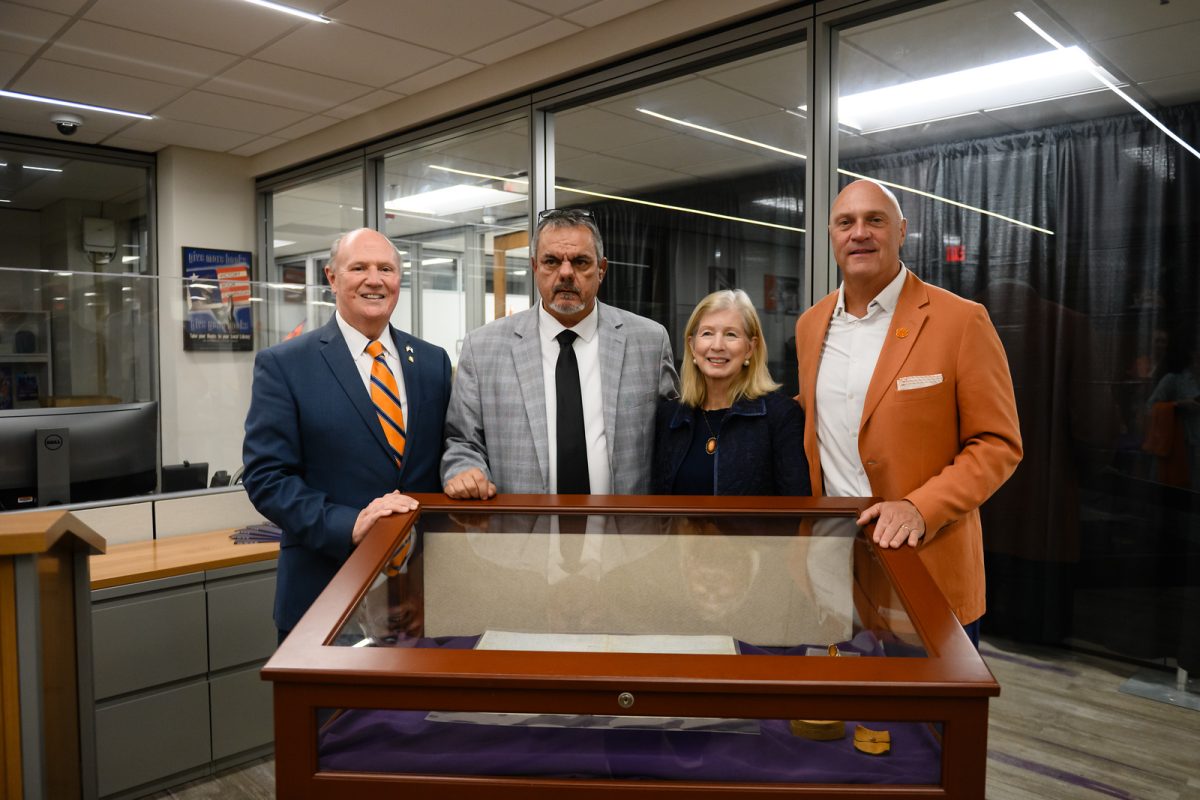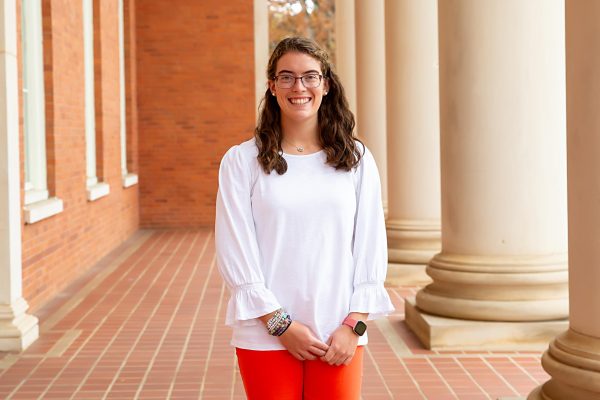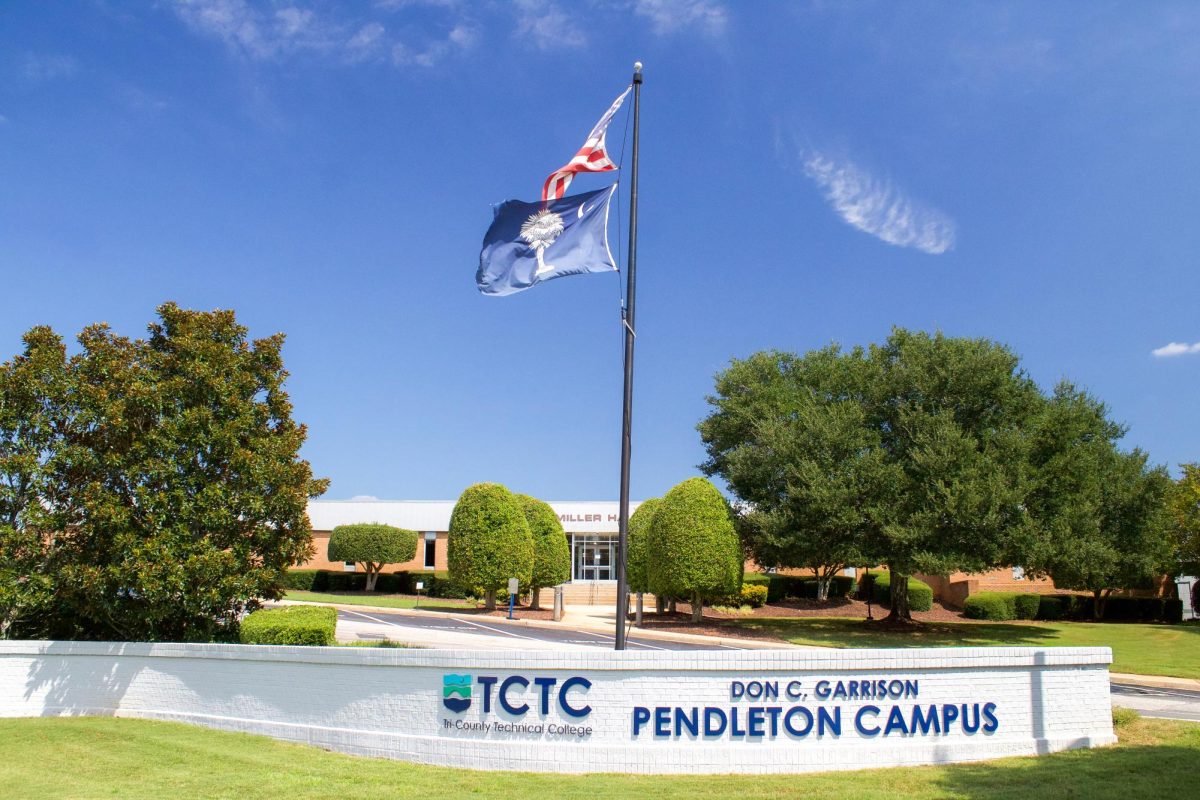Following its signature nearly 140 years ago, Thomas Green Clemson’s original will was returned home to Clemson University on Nov. 4.
The University owes its founding to the contents of Clemson’s will, which specifically dedicated “the bulk of (his) property to the establishment of an agricultural college upon the Fort Hill place,” according to the document.
For 135 years, University officials have sought to align every aspect of Clemson to the will. From the preservation of Fort Hill, a National Historic Landmark, to the objectives outlined in the Clemson Elevate strategic plan, all serve to ensure that Clemson remains in keeping with the desires of its land donor.
Clemson hoped the school would “be a high seminary of learning in which the graduate(s) of the common schools can commence, pursue and finish the course of studies terminating in thorough theoretic and practical instruction in those sciences and arts,” a copy of the will states.
“We opened our doors in 1889 as a land grant institution whose purpose was to elevate the lives of the people across the state of South Carolina and beyond by providing a path to a better future and a path to economic prosperity,” Jim Clements, president of Clemson University, said in a dedicatory ceremony on Nov. 4.
“I tell people, it’s our playbook. It is our road map for what we have been asked to do with Mr. Clemson’s gift. Our founder was very clear in his expectations of us.”
Since 1967, Clemson’s will was stored in the Oconee County Probate Court in Walhalla, South Carolina, when the University was transferred to the jurisdiction of Pickens County, according to Upstate Today.
However, Judge Danny Singleton of Oconee County Probate Court believed that such a critical element of the University’s history should live on its campus.
“I had the opportunity to review Thomas Green Clemson’s will … I was amazed at the detail of the will and its condition,” Singleton said during the dedicatory ceremony. “While reading the documents, I realized the significance of his will and the historical impact that Mr. Clemson not only had for this community but also for the state … It struck me that without the will of Thomas Green Clemson, there would be no Clemson University.
“I reached out to President Clements with the wish to share these documents with the University and possibly have them publicly displayed in a way that would continue the preservation and give the documents the respect they deserve.”
Otis Pickett, the University historian for Clemson University, did not respond to The Tiger’s request for comment.
Clements and Singleton signed a long-term loan partnering the court with the University to bring Clemson’s will and several other founding documents, including the will and record of Anna Maria Calhoun Clemson regarding Fort Hill, onto campus.
Clemson’s will is currently housed in the Strom Thurmond Institute’s Special Collections and Archives. Students, faculty and staff will have an opportunity to view the will in spring 2025 after a special case is built to preserve the document, according to Clemson News.











Geoff Gilson • Nov 19, 2024 at 10:46 pm
Personally, I’m delighted that Thomas Green Clemson’s Will has been returned to Clemson. Not everyone knows that the Will sets out in great detail precisely how Clemson University should be set up and run. To the extent that, if the details are not followed, Clemson University may have to forfeit the land upon which the Will established the University. Indeed, it is this fact, more than any other, that allowed the University’s administration for decades to refuse student representation on the Clemson Board of Trustees. The argument was that, since the Will did not specifically outline student representation, it couldn’t happen. When I helped to draft the student government legislation that led to the current renewed effort to place student government representation on the BoT, I first sought the legal advice of the ABA. I was told in no uncertain terms that, while the Will did not identify student representation, neither did it forbid it. As a consequence, that obstacle has now been removed. I can’t think of a better moment for Clemson to honor the spirit of Thomas Green Clemson, along with the promises already made by the BoT, and finally approve student government representation on the BoT.